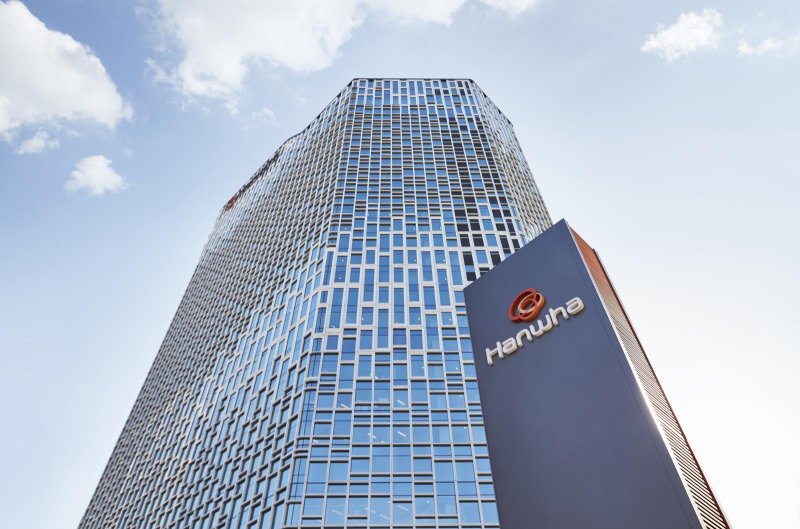South Korea’s Financial Supervisory Service halted a rights offering worth $2.5 billion by defense giant Hanwha Aerospace. Photo courtesy Hanwha Group
March 28 (UPI) — Top executives of South Korea’s defense giant Hanwha Aerospace sought to calm angry investors at Tuesday’s shareholders’ meeting in Seoul.
The reason: the company’s recent announcement of a rights offering worth $2.5 billion upset investors as the move triggered a plunge in the firm’s stock price.
Hanwha Aerospace CEO Sohn Jae-il said that the paid-in capital increase was the best choice to help the company better compete with its European rivals. Hanwha Aerospace is an affiliate of Hanwha Group, South Korea’s seventh-largest conglomerate.
“In order to carry out large-scale investments in a short period of time while maintaining a robust debt ratio for overseas bidding, a rights offering is the most effective solution,” he said.
Hanwha Aerospace vowed to use the new funds for the overseas defense business, the foreign shipbuilding industry, and the development of engines for unmanned aerial vehicles.
The new rights offering is subject to approval by the Financial Supervisory Service, which initially praised the measure but suddenly halted it Thursday.
Above all, the move continues to spark controversy as it has weighed on the share price.
Over the past five years, the market capitalization of Hanwha Aerospace jumped nearly 40-fold on the Seoul bourse. The company also cruised well throughout this year thanks to increased global contracts after the war broke out between Ukraine and Russia in early 2022.
In July 2022, for example, Hanwha Aerospace signed a framework agreement with Poland to export 672 K9 self-propelled howitzers and 288 Chunmoo multi-caliber rocket artillery systems.
Thereafter, Hanwha Aerospace struck multi-billion-dollar executive contracts with the European country and more deals are expected in the not-so-distant future.
Yet, the announcement of the rights offering resulted in a stock market crash, with its share price plummeting 13.02% last Friday, although it somewhat bounced back this week.
Stock market plunge and criticism
A vast majority of Korea’s brokerage houses also expressed disappointment with Hanwha Aerospace’s choice. More than 10 brokerages came up with reports on the issue this week, which have been mostly negative.
“Hanwha Aerospace’s annual investment target did not exceed $1.4 billion. Hence, it likely could have been funded solely through its own profits,” MERITZ Securities analyst Lee Ji-ho said in a report.
Last year, Hanwha Aerospace netted $710 million in profit. Over the next two years, its combined bottom lines are predicted to be around $3.4 billion.
Some critics take issue with a recent step of Hanwha Aerospace, which channeled $890 million to purchase shares of Hanwha Ocean from other Hanwha affiliates, including Hanwha Energy and Hanwha Impact.
In 2023, several Hanwha subsidiaries teamed up to take over Hanwha Ocean, formerly Daewoo Shipbuilding & Marine Engineering, in a $1.4 billion deal.
“Hanwha Aerospace decided to snap up Hanwha Ocean shares at a time when the shipbuilder’s stock price was rising. That’s bad for shareholders of Hanwha Aerospace but good for those of Hanwha Energy and Hanwha Impact,” business tracker Leaders Index CEO Park Ju-gun said in a phone interview.
“Of note is that Hanwha Energy is a private company owned by Hanwha successors and Hanwha Impact is also related to them. Can shareholders of Hanwha Aerospace accept this?”
Hanwha Group Vice Chairman Kim Dong-kwan, the eldest son of Hanwha Chairman Kim Seung-youn, holds a 50% stake in Hanwha Energy. The remaining 50% is owned by his two younger brothers.
In addition, Hanwha Energy has a 52% stake in Hanwha Impact.
Korea’s civic group People’s Solidarity for Participatory Democracy concurred with Park.
“From the perspective of ordinary shareholders of Hanwha Aerospace, it seems unreasonable that the company used internal funds to purchase shares of Hanwha Ocean and raised business funds via a capital increase, which caused losses for them,” PSPD official Kim Yun-jin told UPI.
In response to such criticisms, Hanwha Aerospace countered that the stock purchase of Hanwha Ocean had nothing to do with the owner’s family.
“As Hanwha Aerospace is a holding company in the military business, we think that it should hold more shares of Hanwha Ocean to create greater synergy effects,” a Hanwha Aerospace spokesman said.
Meanwhile, the FSS originally said that there were no problems with Hanwha’s paid-in capital increase. Yet, the financial regulator abruptly halted the process Thursday, asking Hanwha Aerospace to submit a revised filing.
The FSS pointed out that the first capital increase filing was lacking in such crucial areas as the rationale for the rights offering and communication with shareholders.
Against this backdrop, Hanwha Aerospace said that it would present the revised plan as soon as possible, but observers worry that the rights offering may be delayed compared to the previous plan.
